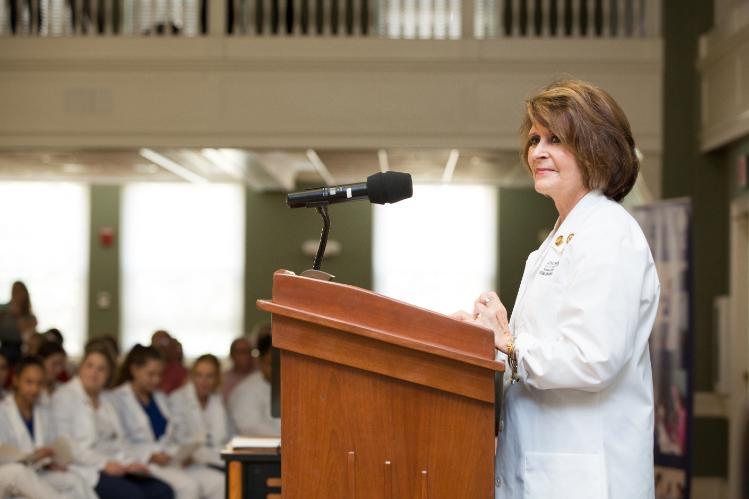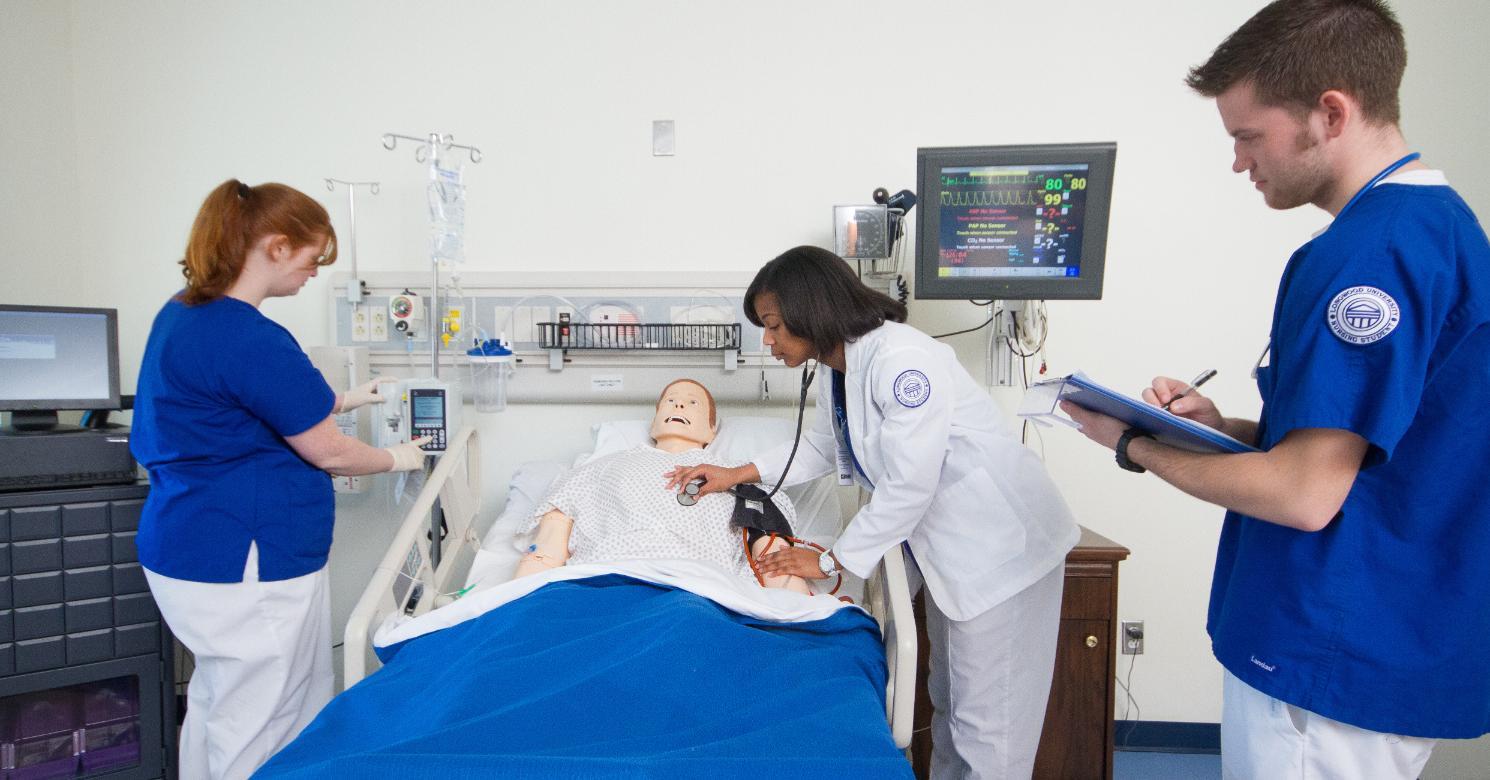Let's start with the NCLEX results. Can you put into context how much of an accomplishment this is?
The NCLEX is a national licensing exam that all nurses must pass—you can’t get a job without it—so the stakes are quite high—and each year there are many people across the country who turn out to be great nurses that don’t pass the test for one reason or another. A lot of baccalaureate students, especially, are barreling toward the end of their senior year and thinking about graduation, jobs and life after college, all of which take attention off the test. So there’s a lot of pressure and competing forces, and a 100 percent pass rate is pretty rare.
This class, though, came together and decided—without telling us—that they were all going to pass it on the first attempt. And so, even though it wasn’t without struggle, they supported each other and reached their goal.
Is that 100 percent pass rate the new standard for each upcoming class?
The goal has always been to achieve a 93 percent pass rate, and that won’t change. That the entire class passed last go-round is somewhat of an anomaly, but Longwood graduates will be successful nurses even if a few have to take the test a second time.
The NCLEX pass rate is an important benchmark, but it’s not the only barometer of a successful nursing program. For example, every one of our students last year who sought nursing work had a job when they got to the pinning ceremony. That’s really important and shows our students have a reputation for being well-prepared on day one.
Every one of our students last year who sought nursing work had a job when they got to the pinning ceremony. ...our students have a reputation for being well-prepared on day one.
Nursing department chair Dr. Deborah Ulmer

Talk about that preparation. What makes Longwood’s nursing program different from others?
To start, we are a full four-year program. Freshman students come in as declared nursing majors and are entered into the program immediately. Longwood was really the leader in this. After we showed a lot of success training nurses this way, other universities adopted the model and are also having success.
What advantages does that model impart?
Our students start getting clinical experience in their first semester in college with a freshman seminar, foundational courses and clinical labs in the Gordon Simulation Center. They begin clinical work at partner agencies in their sophomore year, far earlier than most programs. The program model also attracts students who have a deep desire to become nurses and who don’t want to compete again for a program in two years. So we have a dedicated group of students who are extremely eager to get started on their journey.
In addition, we have hired professors with a strong clinical experiences. Often baccalaureate programs can drift away from practical, hands-on instruction, but our faculty keep our students grounded.
Where are you seeing the most growth in the nursing program?
We have a larger number of honors students than ever before, which is encouraging. And that, in part, is forcing us to think bigger about our program. Parents and students have been asking about the options for international study within the nursing program, so we are exploring that path. We’re working to attract student-athletes into the program, and I’d like to make significant inroads on that front in the coming years. But the hallmarks of our program remain constant—small class size, access to faculty and a new focus on undergraduate research that students are using as a springboard to graduate school.
We’re also putting an emphasis on health policy regionally, nationally and globally because these are big issues that the profession is facing every day. Many of our graduates are moving quickly into leadership positions, and it’s more important than ever to have a firm grasp on policy.
What kind of jobs are students getting after graduation?
There’s a long-held belief in nursing that you have to work two years as a medical-surgical nurse before you can get a job in a specialty or critical care unit, but we’re finding that’s not always true. A lot of our students are getting specialized internships between their junior and senior years, which often lead to job offers outside of medical-surgical nursing, which is often more broad. Others are applying for and landing jobs in highly specialized environments.
The RN-to-BSN program is wrapping up its first year. Has it met expectations?
It’s exceeded them. We’ve employed a high-flex model of delivering instruction, which opens the program up to people with all work schedules. It’s designed for working nurses, and many of them are on overnight shifts or work at odd hours. So we have live classes, live streaming and recorded classes to draw from, and students are taking advantage of all three forms.
This is really serving our community—all of our students in the RN-to-BSN program are employed at regional hospitals or clinics and will put their new expertise to work right here at home, increasing the level of health care in the region.



Leave a Comment